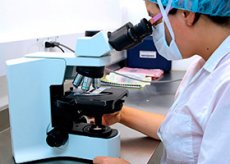Analysis of feces during pregnancy
Last reviewed: 23.04.2024

All iLive content is medically reviewed or fact checked to ensure as much factual accuracy as possible.
We have strict sourcing guidelines and only link to reputable media sites, academic research institutions and, whenever possible, medically peer reviewed studies. Note that the numbers in parentheses ([1], [2], etc.) are clickable links to these studies.
If you feel that any of our content is inaccurate, out-of-date, or otherwise questionable, please select it and press Ctrl + Enter.

Analysis of feces during pregnancy is prescribed in order to make sure that there are no diseases of the gastrointestinal tract and to exclude the possibility of helminthic invasion. Also, with the help of stool analysis, you can get information about digestive problems, get information about metabolism, and also learn about hidden diseases of other organs and systems. In addition, a referral to the analysis of feces can occur when pregnant digestive disorders or intestinal infections occur.
Preparation and procedure for delivery of feces during pregnancy
Before giving the analysis of stool, it is necessary to abandon the drugs and x-rays of contrastive examination of the intestines, which can change the work of the gastrointestinal tract and give a false result, and also, if necessary, adhere to the diet for at least five days before the material is submitted for study.
A specimen of feces must be taken in a laboratory in a special container made of plastic or glass, which can be purchased at the pharmacy. For more accurate results, it is better to take a sample of feces in the morning. For the accuracy of the analysis, samples of stool should be taken using a scapula in four different places of feces. If an analysis of feces for the presence of Giardia in it is prescribed, etc., then it takes 15-20 minutes to deliver it to the laboratory.
Who to contact?


 [
[